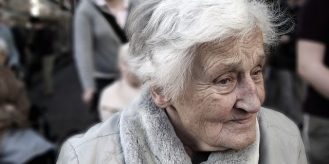The Need
Sometimes it is a wonderful feeling to be alone, to have time to yourself to think and reflect. But for many older adults, being alone is not something to look forward too. For someone who has just retired from work, or who has lost a spouse, a friend or a loved one—the idea of not having anyone to turn to can be very scary.
Researchers have described loneliness among the elderly as being one of the biggest social challenges of the modern age. In Israel, 36% of seniors age 65 and older report feeling lonely, and almost half of them say that these feelings are frequent.
The Intervention
Israel’s Social Security Administration, the Ministry of Labor and Social Affairs, and JDC-Israel have teamed up to find new ways of addressing this problem. They are working with fourteen organizations across Israel to test 24 different programs to alleviate loneliness among the elderly.
Each program is trying something a little different: Some are group programs, some are for individuals. Some focus on counselling, others provide social activities. Some are for seniors who are more independent, others are for people who have more difficulty functioning alone.
There are programs in big cities and in small towns. There are programs for Jews and for Arabs.
MJB’s Evaluation
For three years, MJB is tracking all 24 programs to see how they develop, who they are reaching out too, what activities they are engaging in, where they are succeeding, and how they are impacting on the local community.
Like all of MJB’s studies, we are working together with the partners to learn and improve as they go along.
The project is at its halfway mark, and although it is a challenge to analyze so many different programs with such different intervention strategies, we are already able to pull out some common themes.
We know, for example, how critical it is to catch a person at the right time—to put services in place before a person starts feeling lonely, rather than wait until after loneliness sets in, and when it might be too late.
We have seen how the presence of a program can create a ripple effect in the community. By making it more acceptable to talk about loneliness, communities are mobilizing to create additional programs and services. This mobilization can then keep the momentum going, helping make sure that the friendships and connections made during the program can turn into something more long lasting.
Over the next year, we will continue to interview participants and staff, and monitor the outcomes.
And at the end of the three years, our goal is to help JDC and the government be able to put in place new program models around the country, with the most effective tools for helping older Israelis feel more in touch, more integrated, and more connected to their family, friends, and their community.
MJB’s research on loneliness among the elderly is supported by MJB Committee member Nancy Hackerman of Baltimore, Maryland.



